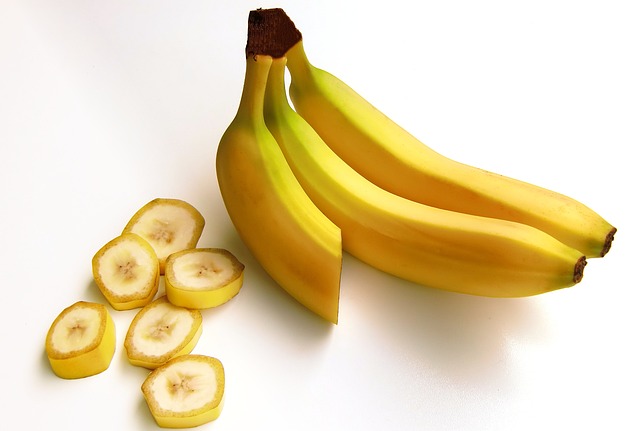Move Over Strawberries: Why Bananas Deserve the Title of Berry

Move Over Strawberries: Why Bananas Deserve the Title of Berry
When you think of berries, what comes to mind? Most likely, your thoughts turn to small, vibrant fruits like strawberries, blueberries, and raspberries. However, there is one humble fruit that often goes overlooked in the berry category: the banana. Yes, you read that right. Bananas deserve the title of berry, and it's time to give them the recognition they deserve. In this article, we will delve into the fascinating world of bananas and explore why they should be considered true berries.
Why Bananas Should be Considered as Berries
The common misconception surrounding berries lies in their definition. According to botany, a berry is a fleshy fruit produced from a single ovary. When we think of berries, we envision small, juicy fruits with seeds embedded in the flesh. Surprisingly, bananas fulfill these criteria perfectly. They may not resemble the typical image of a berry, but their botanical classification speaks for itself.
One of the key characteristics that define a berry is its seed arrangement. Unlike other fruits, berries have their seeds embedded within the flesh. If you've ever cut open a banana, you'll notice numerous tiny black seeds scattered throughout the fruit. These seeds are the remnants of the ovules found in the ovary. So, bananas have seeds, check!
Another defining feature of berries is the origin of their flowers. Berries emerge from flowers that have a single ovary, making them known as "inferior" ovaries. Bananas, being a member of the Musa genus, exhibit this exact floral structure. Each banana plant develops a flower cluster known as an inflorescence, which contains multiple individual flowers. These flowers fuse to form a compound ovary that ultimately gives rise to the fruit. Consequently, bananas fulfill the botanical requirements for being berries.
Now, you might wonder why bananas are rarely referred to as berries in everyday conversation. The answer lies in culinary and cultural traditions. The term "berry" is often associated with small, bite-sized fruits that are typically consumed raw. Strawberries, blueberries, and raspberries perfectly fit this description, leading to their popular classification as berries. On the other hand, bananas are larger and are often consumed when fully ripened. This difference in size and culinary usage has led to the misclassification of bananas.
The Potential Benefits of Banana
Beyond botanical classification, bananas offer numerous health benefits that further solidify their claim as worthy berries. Firstly, bananas are packed with essential nutrients. They are an excellent source of dietary fiber, vitamin C, potassium, and vitamin B6. These nutrients play key roles in maintaining heart health, promoting digestion, and supporting overall well-being.
Similar Read:
Moreover, bananas are a versatile and convenient fruit. They are an easy snack option, providing a quick burst of energy. Bananas can be eaten on their own, sliced over cereal or yogurt, or blended into smoothies. Their creamy texture and subtle sweetness make them a popular choice for baking, adding moisture and flavor to bread and desserts. The versatility of bananas, combined with their nutritional profile, makes them an ideal choice for any meal or snack.
Bananas also offer benefits beyond their nutritional value. They contain a natural compound called dopamine, known to boost mood and reduce stress. The high potassium content in bananas helps regulate blood pressure, promoting cardiovascular health. Additionally, bananas are gentle on the stomach and can help alleviate digestive issues such as bloating and indigestion.
In terms of sustainability, bananas also have an edge over other fruits. They are widely cultivated in tropical regions, making them accessible and affordable year-round. Furthermore, banana plants are remarkably efficient in converting sunlight into energy, making them an environmentally friendly crop. The abundance and accessibility of bananas make them an excellent choice for individuals and communities aiming to make sustainable food choices.
